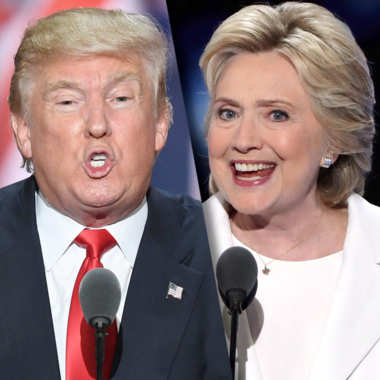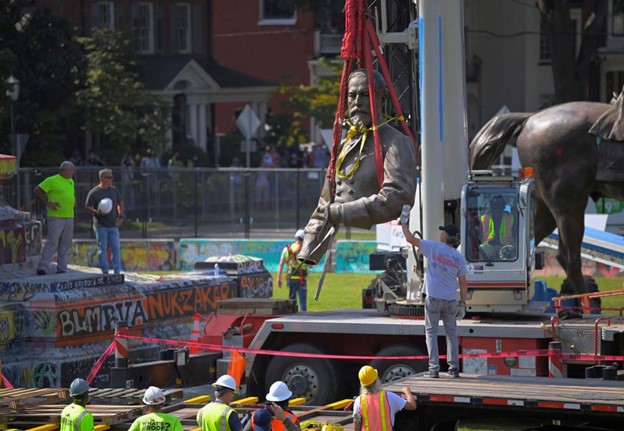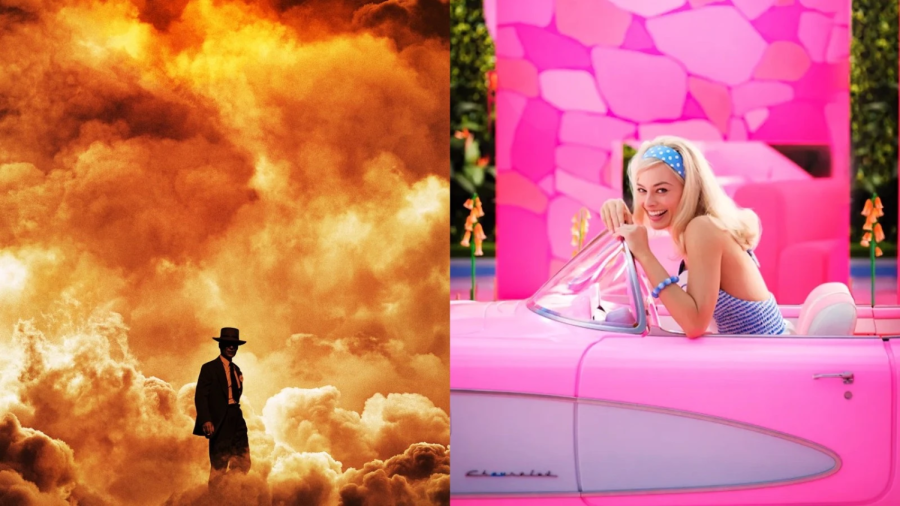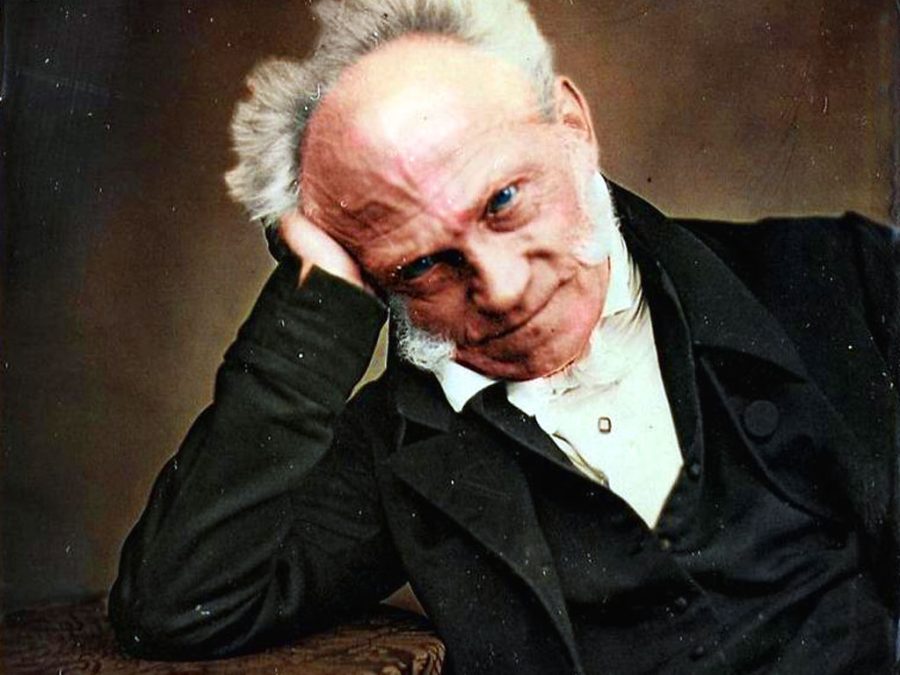By Mickey Masterson ’17, Perspectives Section Editor
Well, it happened. After 23 major candidates vied for either the Democratic or Republican Party nomination, the American people have narrowed the race down to two: former Secretary of State Hillary Clinton and businessman/hair stylist extraordinaire Donald Trump. With the close of the primary season, the next chapter of the 2016 Presidential Race began with the National Party Conventions, where the candidates accepted their respective nominations. The Republican National Convention was held from July 18-21 in Cleveland Ohio, followed a week later by the Democratic National Convention in Philadelphia, Pennsylvania. These weeklong extravaganzas full of celebration of the nominee and gearing up for the general election battle also served as crucial moments to unify their respective parties to rally against their opponents.
While both Conventions had similarities, they explicitly demonstrated the difference between former Secretary Clinton and Mr. Trump. While the incumbent party celebrated its success over the past 8 years, and preached for patriotism and the status quo, the Republicans, led by Trump, cried for change (a reversal of 2008 election where Obama was the “change” candidate and successfully usurped the incumbent party). While both party conventions had serious issues, the RNC proved the most divided. Fear was the strongest undercurrent to the RNC. Trump’s grasp of reality is frighteningly different then the actuality; he sees an America in chaos, on the edge of apocalypse. He hypnotizes his supporters into believing this fantasy dystopia is real. But the majority of Americans aren’t buying it.
While Trump did briefly overtake Clinton in the polls after the RNC, she has remained steadily ahead since the DNC. Despite attempts by the Trump campaign to stay on message and explain clear, specific policies, Mr. Trump seems incapable of keeping his mouth shut. Since the RNC and DNC, Trump has insulted the family of a fallen Muslim American soldier, referred to Barack Obama and Hillary Clinton as “the founders of ISIS,” and so on. Secretary Clinton remains a clear favorite for November. However, with this crazy election, anything is possible; the presidential debates may very well shake things up. Let the mudslinging begin.
A recap of how the conventions went:
The Republican Convention:

While Donald Trump emerged from the primaries the undisputed winner due to the support of his populist voters, his extremely controversial statements and temperament created a deep rift in the Republican Party. While cries of “Make American Great Again” and “Hillary for Prison” pervaded the convention hall, the #NeverTrump movement made its presence known. Despite the reluctant endorsements of Republican leaders such as Speaker of the House Paul Ryan, many prominent Republicans have refused to endorse their party’s nominee and some even publicly decried Mr. Trump. The absence of the Bush family sent a strong message. 2012 Republican nominee Mitt Romney, a vocal critic of Trump, followed suit and skipped the conference. The list goes on. The fact that Ohio Republican leaders Gov. John Kasich and Sen. Rob Portman didn’t set foot in the convention center is especially jarring considering that Gov. Kasich was just outside the center talking with state-delegates. 2016 Republican candidate Senator Ted Cruz did make an appearance at the RNC, but bizarrely did not endorse Trump during his speech. This led to him being booed off the stage, only worsening the tensions in the Republican Party.
Despite the support of the voters, the sheer lack of support from a large fraction of the GOP establishment is a strong disadvantage for Mr. Trump. Regardless, the RNC did succeed in fleshing out the platform Trump is running on. Mr. Trump has been very vague in the past in regards to specifics of his potential administration other than his constant insistences that he will “Make America Great Again” and “Build a Wall.” The restoration of law and order to America emerged as a strong theme throughout the week.
Mr. Trump, during his speech, did surprisingly mitigate some of his less than presidential qualities. He managed to stay on message and not make any outrageously offensive remarks. Through this he was able to more or less paint a picture of the policies he would implement in office. He was careful to say that he would combat “radical Islamic terrorism” by blocking those from “countries compromised by terrorism” from entering the US, rather than saying he would “ban all Muslims” and “go for their families.” He even went as far to say that “as president he would do everything in his power to protect our LGBTQ citizens,” in the wake of the tragic shootings in Orlando. However the climactic moment of his speech was when Trump stated that he was the only one capable of fixing America, and triumphantly declared “I am your voice.”
Even with the more colorful aspects of Mr. Trump’s personality absent from the speech, it still highlighted the underlying problems with his campaign. The Trump campaign hinges entirely on the assumption that America is broken. And that Trump is the only one who can fix it. Trump’s candidacy at its core relies on fearmongering and giving false assurance to millions of desperate Americans.
The Democratic Side:

The Democratic Party likewise went into its national convention divided, however very much in the opposite scenario of the Republicans: Mrs. Clinton has the full support of the Democratic establishment however lacks the support of the voters who backed dark horse candidate Senator Bernie Sanders. While Sen. Sanders gave Secretary Clinton a run for her money in the primaries by vote count alone, she pulled ahead in the race due to having more superdelegates. Despite Sanders having already endorsed Clinton, many of his supporters were not convinced to join her. To make things worse, just as the Clinton campaign had thought that the email scandal was getting behind them, another bomb dropped days before the convention. WikiLeaks published almost 20,000 leaked emails from the supposedly impartial Democratic National Committee. Some emails showed clear preference towards Clinton, and contained remarks indicating distaste towards Senator Sanders and his campaign staff. This incident resulted in the resignation of Congresswoman Debbie Wasserman Schultz as Chair of the DNC. This development only further enraged Bernie’s numerous supporters.
Throughout the first day, chants of “Bernie!” would break out in the crowd, sometimes drowning out the current speaker. However, once Bernie took the stage that night, his speech effectively put a rest to those discordant Bernie supporters. While the socialist senator from Vermont is far from a fan of Hillary Clinton, as they debated heatedly throughout the primary season, he recognizes that electing her is the only way of preventing the Donald from occupying the White House. Although he lost the primary, by making a deal to endorse Clinton, she promised to address campaign finance reform if elected president.
The next several days of the convention were significantly less tumultuous. First Lady Michelle Obama gave a very warmly received speech the following day. Likewise, leaders of the Democratic Party such as Vice-President Joe Biden, President Bill Clinton, and President Barack Obama took the stage and voiced their support for the nominee. When Hillary Clinton took the stage, she accepted the first major party nomination of a woman in the United States. Mrs. Clinton, who has been criticized by her lack of charisma, especially in comparison to the two most recent Democrat presidents, gave a very well-presented and well-written speech, reinforcing the themes of her campaign. She declared “It truly is up to us. We have to decide whether we will all work together so we can all rise together.”  The Clintons watch a large number of balloons drop.[/caption]
The Clintons watch a large number of balloons drop.[/caption]
However, due to Mrs. Clinton’s status as a polarizing figure, the above speeches will not really sway the average voter one way or the other. People’s opinions of Mrs. Clinton depend primarily depend on one’s preconceived notions of her.
Now that battle lines have been drawn, America will hold its breath to see who comes out on top.












